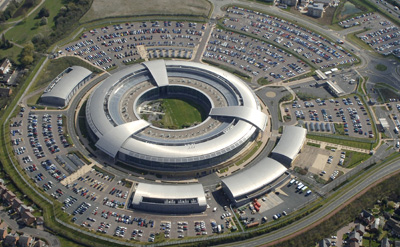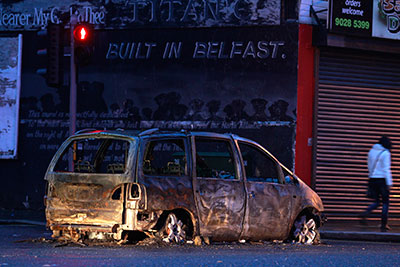CPJ urges UK political parties to reconsider royal charter
New York, October 28, 2013–The Committee to Protect Journalists today called on Britain’s three main political parties to reconsider a royal charter that would establish a new press regulator in the United Kingdom. The Privy Council, the assembly that formally advises the Queen, is scheduled to review on Wednesday the proposed charter agreed by the…
CPJ concerned about Cameron’s Guardian comments
New York, October 16, 2013–The Committee to Protect Journalists is concerned by U.K. Prime Minister David Cameron’s statement today in which he urged members of parliament to investigate whether the Guardian had broken the law or damaged national security by publishing the NSA files.
Greenwald wants to return to US, but not yet
Glenn Greenwald would like to go home to the United States, at least for a visit. But the Guardian journalist and blogger is afraid to do so. He still has material and unpublished stories from his contacts with fugitive whistleblower Edward Snowden that he believes U.S. authorities would love to get their hands on. The…
Solidarity in the face of surveillance
One way for journalists to build more secure newsrooms and safer networks would be for more of them to learn and practice digital hygiene and information security. But that’s not enough. We also need journalists to stand together across borders, not just as an industry, but as a community, against government surveillance. The Obama administration,…
Cameron should probe Miranda detention, return data
Dear Prime Minister David Cameron: The U.K.’s use of anti-terror laws to seize journalistic material from David Miranda, partner and assistant to Guardian reporter Glenn Greenwald, is deeply troubling and not in keeping with the U.K’s historic commitment to press freedom. We call on you to launch a thorough and transparent investigation and to ensure that his confiscated equipment and data are returned at once.
Groups call for EU action against mass surveillance
Recent revelations of American and British mass surveillance of digital communications have triggered an intense mobilization of European free speech and civil liberties organizations, which have launched an online petition calling on leaders of the European Union to halt the practice. The #dontspyonme campaign was presented by Index on Censorship, an independent, British, free speech…

In Woolwich aftermath, UK revives ‘snooper’s charter’
Key elements of the British Communications Data Bill, known as the “snooper’s charter” by its critics, have returned to the political agenda in the month since two suspected jihadis fatally stabbed Lee Rigby, a 23-year-old soldier, in London’s southeast Woolwich district. The bill, which would have given police and security services greater ability to monitor…

Threats to Northern Irish journalists on the rise
The Police Service of Northern Ireland has informed a Belfast-based reporter that dissident republican groups, opposed to the peace process, have issued a death threat against her, the British National Union of Journalists said this week. The threat came after the journalist published a story in a local Sunday newspaper claiming an Irish republican group…
Responding to Hacked Off
Some years back during a visit to the Gambia–the West African nation ruled by a thin-skinned and mercurial president, Yahya Jammeh–I holed up in the sweltering Interior Ministry and pressed officials to release imprisoned journalists and ease up on the country’s brutal media crackdown. The officials resisted, arguing that the press in Gambia was “reckless…